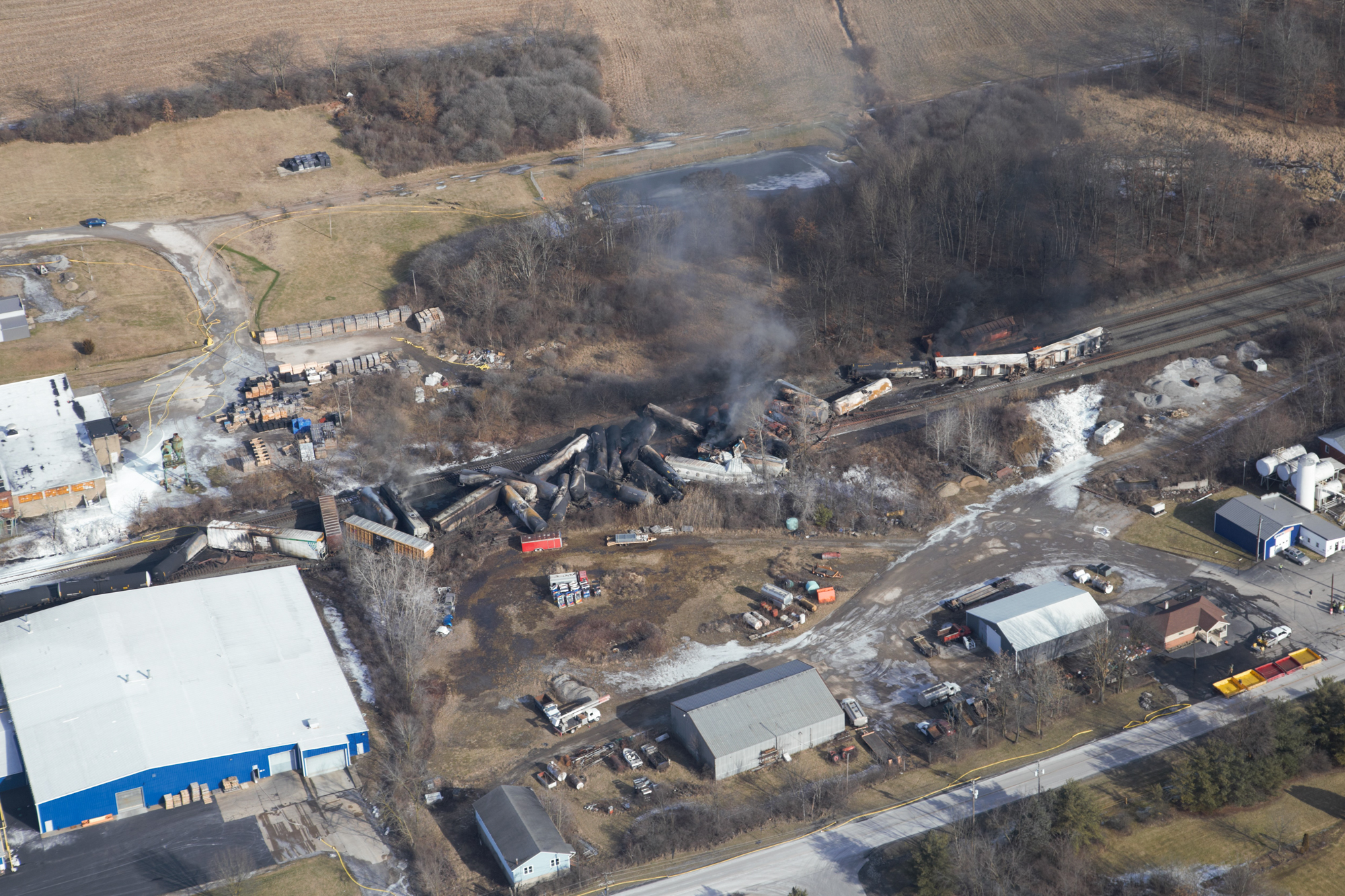Views expressed in opinion columns are the author’s own.
Learning about the Feb. 3 train derailment in East Palestine, Ohio, has only shown me another example of how corporate greed can cause irrevocable harm.
Earlier this month, a train carrying toxic chemicals derailed, causing emergency evacuations and concerns for the community’s health and environment. Already, residents have begun experiencing illnesses and have reported animal deaths in the area, including thousands of fish. Residents have been allowed to return, but many are wary and fear the effects of the chemical spread.
Norfolk Southern, the rail company responsible for this derailment, is facing backlash for its practices, but this story says much more about the rail industry as a whole.
The privatized rail industry’s profit motive disincentivizes safety, and to better prevent these catastrophes, America needs to nationalize our rail systems.
Railroad workers and their unions have voiced concerns about safety issues long before the East Palestine derailment, expressing that new business practices put profit above all else. The recent derailment comes at a time when the private rail industry has switched to precision scheduled railroading, a business model meant to keep rail transport efficient, cheap and profitable. Precision scheduled railroading is a leading cause of the cutbacks seen in the railroad workforce. Along with job loss, PSR has increased the length of trains over 30 percent and cut inspection times from three minutes to about one.
Companies like the PSR model so much because despite the risk of disasters like the one at East Palestine, rail companies are capable of making an enormous profit.
Currently, Norfolk Southern has promised $6.5 million to the East Palestine community, but that’s only a small portion of the $1.1 billion it has in liability insurance. While the EPA ordered Norfolk Southern to pay all remaining costs, it’s unlikely those costs will be a significant financial burden to the company due to its insurance policy and high profit margin.
Along with their business practices, railroad companies have spent tremendous efforts ensuring policies work in their favor. Over the past two decades, rail companies have spent $480 million in lobbying, ensuring rail company wins such as killing a rule that required trains to update their dated brake systems.
Rail companies were also successful in narrowing the definition of “high hazard flammable trains.” In doing so, they limited the safety regulations on transporting hazardous chemicals. The definition is currently so limited that the East Palestine train didn’t even qualify as a high hazard flammable train, despite the chemicals starting a fire and causing explosions. Under a nationalized model, the government would have greater discretion in policy reforms and wouldn’t have to abide by the will of private companies, allowing the government to better implement safety regulations.
The lack of economic consequences gives rail companies little incentive to prioritize safety. However, under a nationalized model, the driving motive for profit would be mitigated.
An American model of a public corporation that does this would be the United States Postal Service. Without the public model, many Americans would lack access to mail service because private companies, driven by profit, would overcharge or simply refuse to deliver mail to expensive locations. However, because the USPS is a government corporation, it is allowed to have losses because rural communities’ access to mail is more important than profit. If nationalized, freight rail could operate in such a way to prioritize safety over profit.
Rail worker unions including United Electrical, Radio and Machine Workers of America and Railroad Workers United have also supported public ownership of the rail system, arguing that private greed is creating unsafe and unfair working conditions. The unions contend that public ownership would make freight rail more competitive and expansive.
With freight rail routinely transporting hazardous materials, we’ve seen just how dangerous leaving the rail system to the free market can be. Public ownership of current transportation infrastructure such as highways and transit systems are far from perfectly run, but it’s fair to say that public ownership of America’s rail system could be beneficial.
After the recent East Palestine derailment, it’s undeniable that the rail system needs reform. However, the government can’t stop a private company from prioritizing profit, so reform can only go so far. The government must wholly intervene and remove freight rail from the dangerous private sector.
Kyra Freeman is a sophomore philosophy, politics and economics major. She can be reached at freemankyra04@gmail.com.



